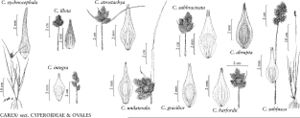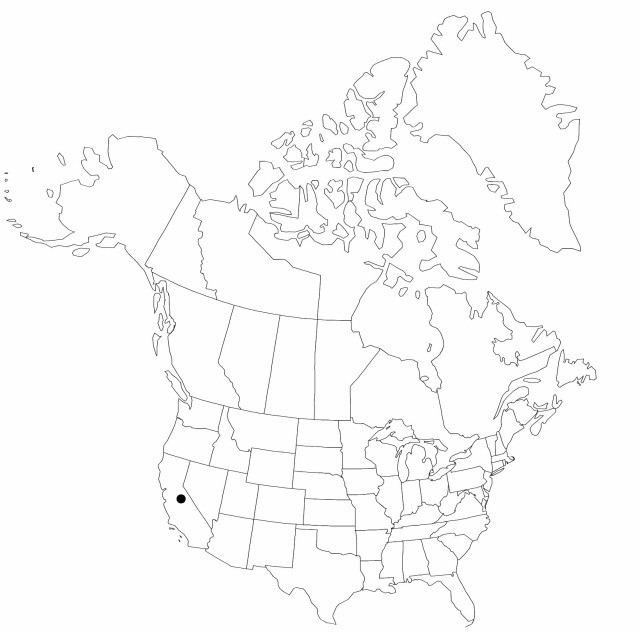Carex gracilior
Bull. Torrey Bot. Club 43: 614. 1917.
Plants densely cespitose. Culms 30–70(–110) cm. Leaves: sheaths adaxially white-hyaline, often brownish tinged, summits U- or V-shaped, prolonged to 0–0.5(–1) mm beyond collar; distal ligules 1.5–3 mm; blades (2–)3–4 per fertile culm, 11–40(–50) cm × 1.4–3.5(–4) mm. Inflorescences open or dense, brown or gold, 1.5–3 cm × 8–12 mm; proximal internode 2.5–7 mm; 2d internode 1.5–4.5 mm; proximal bracts bristlelike or leaflike. Spikes 4–8(–9), distant to loosely aggregated, at least proximal 1–3 distinct, narrowly to broadly ovoid, (8–)10–11 × 4–6.5 mm, base acute to attenuate, apex acute to truncate. Pistillate scales gold or red-gold to chestnut-brown, often with green, gold, or whitish midstripe, ovate to broadly ovate, 3.1–3.6(–4.2) mm, less than or equal to perigynia length, width, margin white, 0–0.2(–0.3) mm wide, apex obtuse to acuminate. Perigynia appressed-ascending to ascending, green or straw colored to light brown, often green distally, conspicuously 5–9-veined abaxially, conspicuously 0(–3)-veined adaxially, narrowly to sometimes broadly ovate, plano-convex or biconvex, 3.5–4.5(–5.4) × 1.5–1.9 mm, 0.6–0.7 mm thick, ± leathery, margin flat, including wing 0.15–0.3 mm wide, ciliate-serrulate at least on distal body, sometimes filled with pithlike tissue towards perigynium base, often with metallic sheen; beak brown or gold at tip, cylindric, unwinged, abaxial suture usually inconspicuous, distance from beak tip to achene 1.5–2.2(–2.8) mm, ± entire for 0.5–1 mm. Achenes elliptic to broadly ovate, (1.5–)1.7–2.1(–2.3) × 1.05–1.45 mm, 0.5–0.65 mm thick.
Phenology: Fruiting spring–early summer.
Habitat: Meadows, sloughs, moist to wet places, roadsides
Elevation: 0–600 m
Discussion
Carex gracilior is very similar to and perhaps conspecific with C. subbracteata (R. Whitkus 1988).
Selected References
None.

